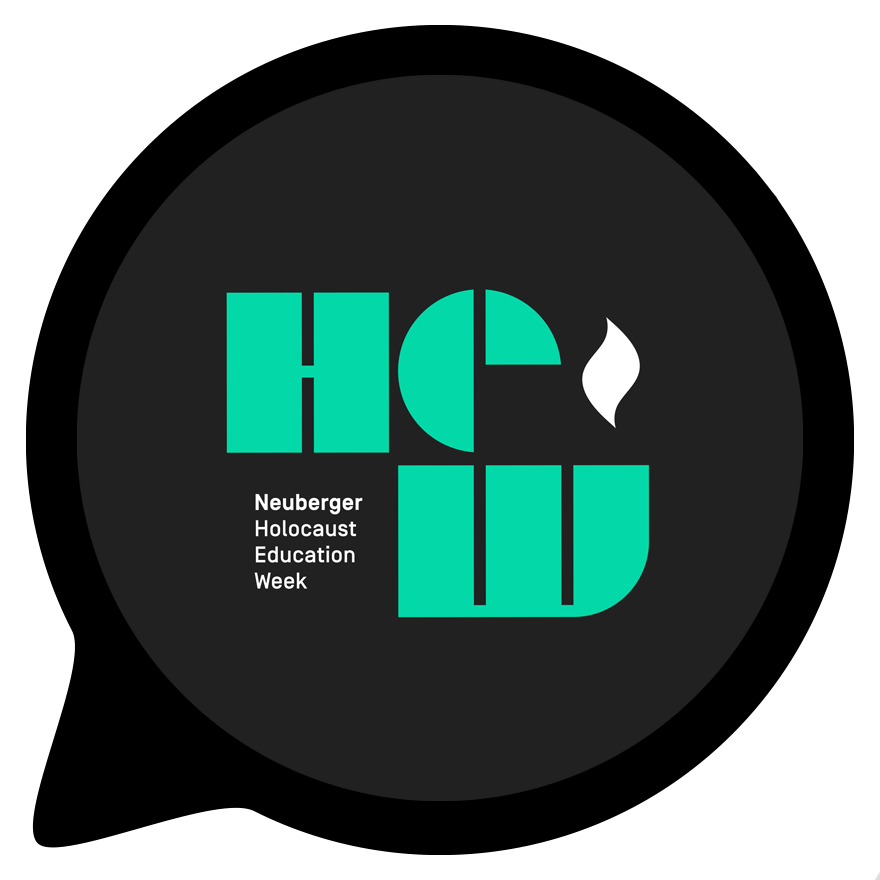Disinformation. Misinformation. Fake news. Conspiracy theories. Social media—that wellspring of truth.
Welcome to our version of the Roaring ‘20s. These unnerving times might put one in mind of a quote attributed to Winston Churchill: “A lie gets halfway around the world before the truth has a chance to get its pants on.”
Blurring realities, “alternate facts,” and the mayhem of the online world have taken a toll on knowledge of the Holocaust. Numerous studies over the past few years have revealed that a shocking percentage of young people have little knowledge of the Shoah, along with those who have never heard of Auschwitz.
Thus the theme of this year’s Holocaust Education Week (HEW), slated to take place virtually from Nov. 1 to 8: “Holocaust Distortion, Myths and Misinformation.” Related programs and cultural events will continue until Nov. 30.
Just 76 years after liberation, a new challenge threatens the memory of the Holocaust, HEW’s program notes say.
“Spread instantly via social media and normalized through pop culture, the surge of Holocaust distortion, myths and misinformation has become increasingly common and dangerous,” the notes lament.
“It is evident in video game culture, the re-writing of Holocaust history by authoritarian leaders, the yellow star used by anti-vaccination protesters, memes with twisted Holocaust-laden imagery, the appearances of youth dressed as victims of the Shoah on TikTok—to name just a few recent examples.”
Protecting the facts, countering falsehoods, and safeguarding the memory of the Holocaust are at the core of HEW 2021, organizers say. Put a more poignant way, they ask: “How can Holocaust educators and scholars maintain consensuses on truth, particularly at a time when we are losing the last of the survivors?”
This year’s theme is “very much in sync with what’s happening in the world right now,” Carson Philips, managing director of the Neuberger Holocaust Education Centre, told The CJN.
Especially during COVID, “we’ve been seeing an increase in antisemitism and Holocaust distortion on social media.”
He said the theme also parallels a global awareness campaign to counter Holocaust denial and distortion, “Protect the Facts,” launched in January by the International Holocaust Remembrance Alliance.
Denying or distorting the facts of the Holocaust is “not just a local or North American phenomenon,” Phillips said. “We’re seeing this internationally.”
HEW will open on Nov. 1 at 7:30 p.m. and will feature Robert Williams of the U.S. Holocaust Memorial Museum, a member of the steering committee of the Global Task Force on Holocaust Distortion, who served for four years as chair of the Committee on Antisemitism and Holocaust Denial at the International Holocaust Remembrance Alliance.
He’ll be in conversation with Andrew Marantz, staff writer for the New Yorker and an expert on online extremism; and Erin Sylvester, acting managing editor of The Walrus. They will discuss how social media and online environments have played a role in creating the current situation, and what can be done about it.
Other HEW highlights:
• The sensitive issue of Holocaust memory and law in Poland will be discussed with Jan Grabowski, a University of Ottawa history professor who was the subject of a libel action in Poland earlier this year for his work on the Holocaust in that country. (Nov. 7, 7:30 p.m.)
• A program to commemorate Kristallnacht, the night of pogroms across Nazi Germany on Nov. 9 and 10, 1938, will also showcase a behind-the-scenes look at the curation of the future Toronto Holocaust Museum, opening in 2023 on UJA Federation’s Sherman Campus (Nov. 8, 7:30 p.m.)
• The annual Dialogue for Descendants for children of Holocaust survivors takes place Nov. 14 from 10 a.m. to 11:30 a.m.
• Jews have long been associated with communism, globalism and general subversion. But now, there are anti-vaxxers, homegrown neo-Nazis, and the growing QAnon conspiracy to further stoke antisemitism and Holocaust distortion. The discussion of new and old conspiratorial antisemitism takes place on Nov 15, 7:30 p.m.
• Representations of fascism, the Second World War, and the Holocaust in video games will be explored on Nov. 16 at 7:30 p.m. Actual games will be played, including Wolfenstein: The New Order, to explore their content and impact. Industry experts will discuss the intersection of history, memory, and video games.
All programs are free of charge. For a full listing of events, visit: https://www.holocaustcentre.com/hew/featured-programs2021





